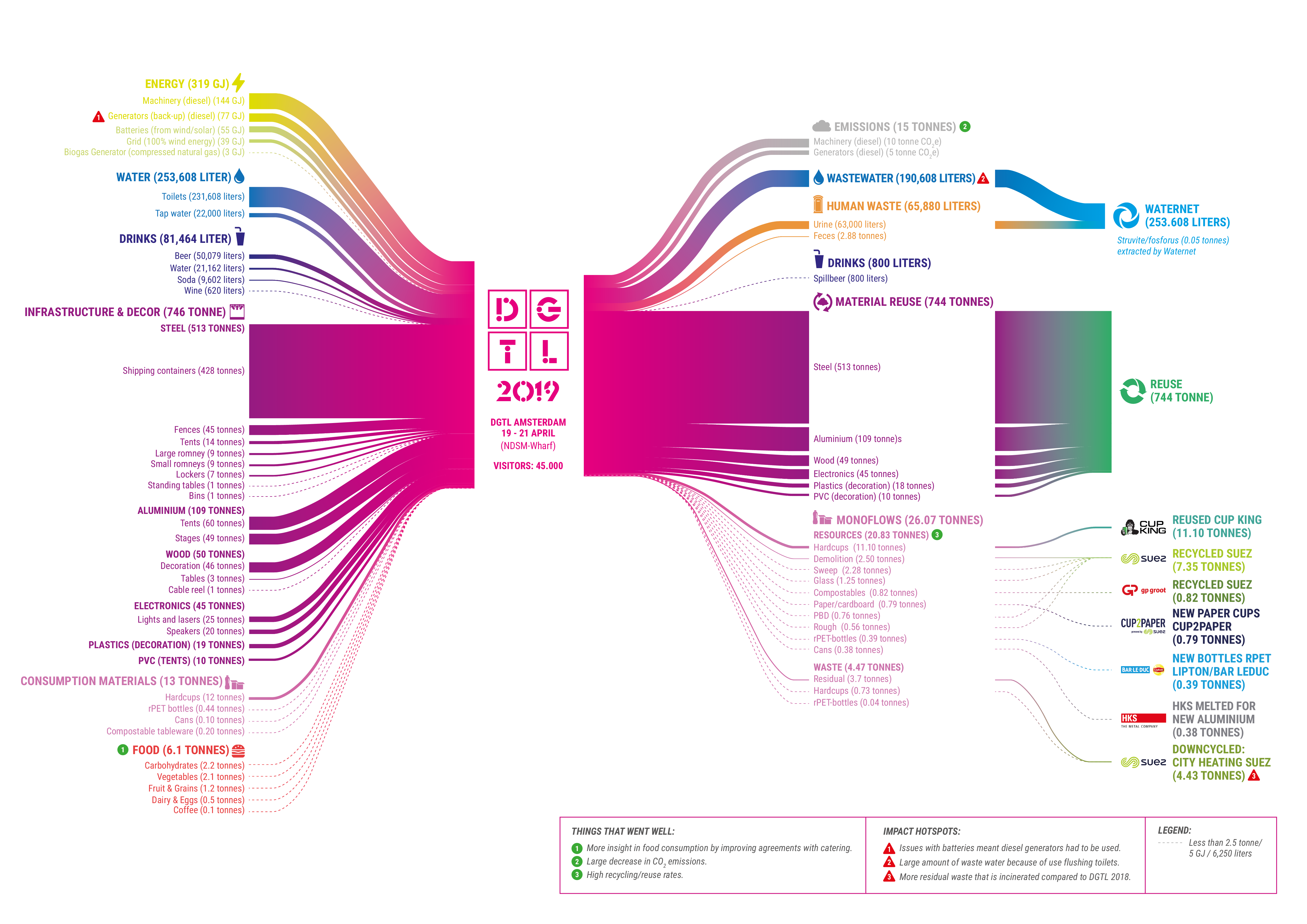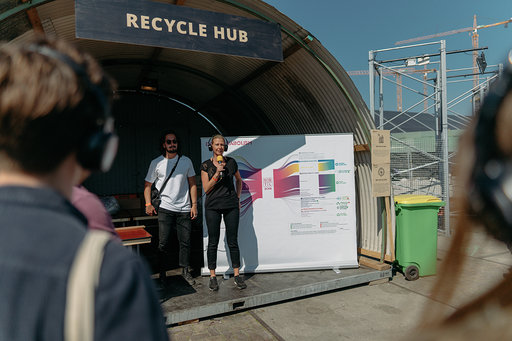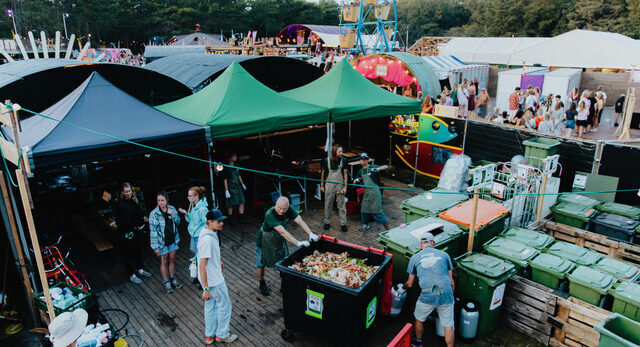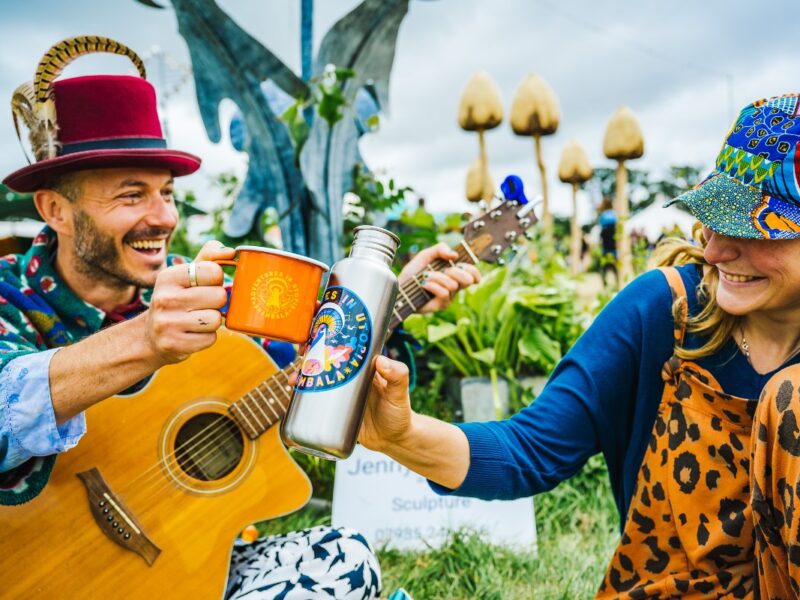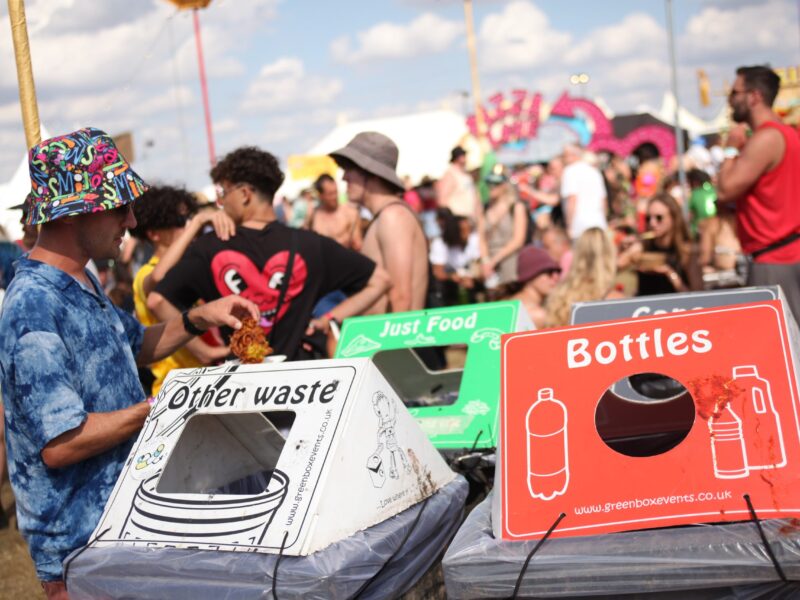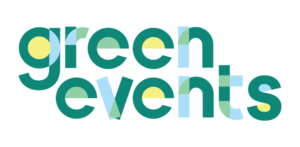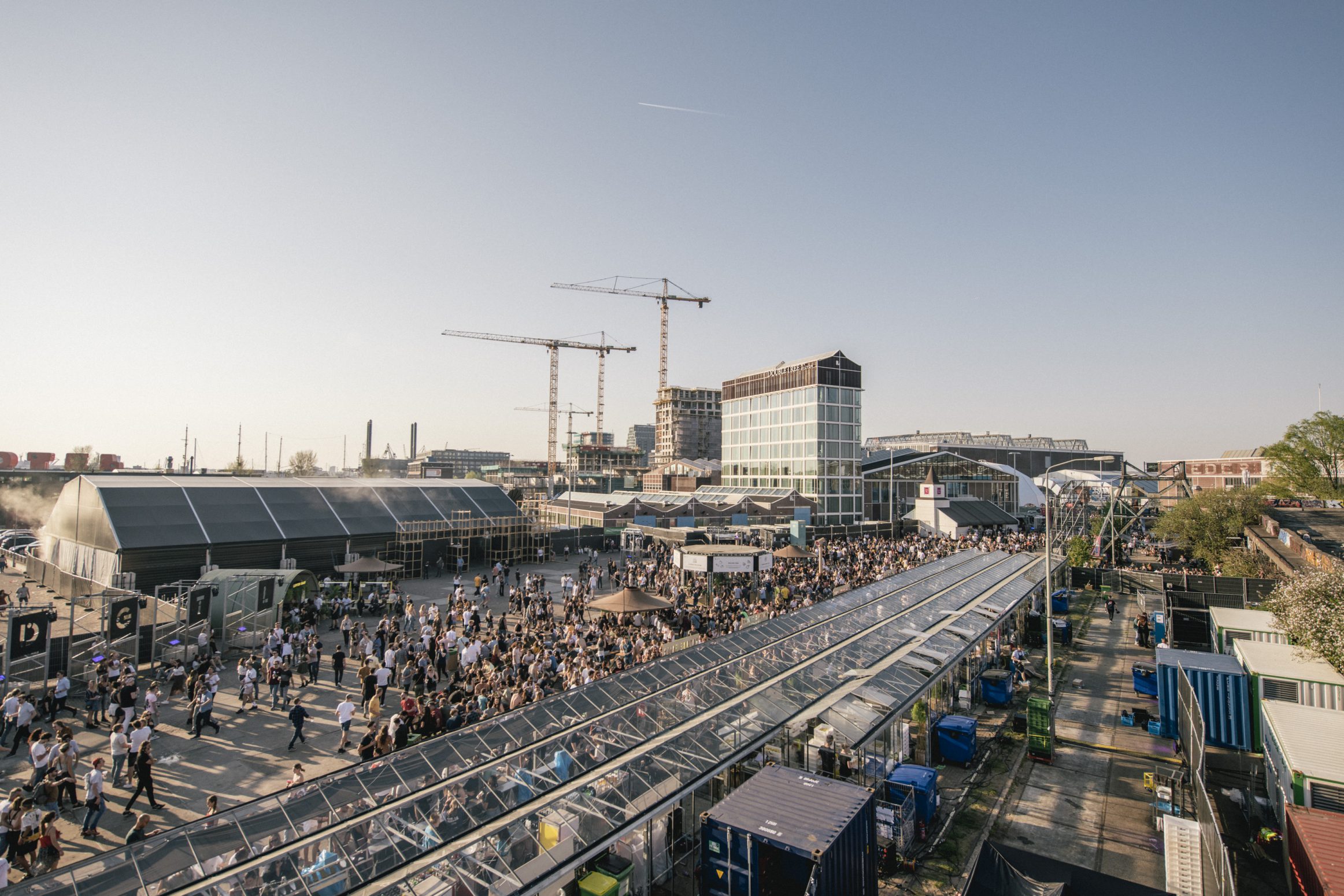
2020 – The year of 100% circularity at DGTL Festival
Which festival is the best example of circular entrepreneurship? In the events industry, DGTL Festival is pioneering in the field of sustainability and circularity. The techno festival participated in the first Green Deal Waste Free Festivals and since ADE Green 2019 in the international Green Deal Circular Festivals. This year DGTL strives for a 100% circular festival. We spoke with Xander Kotvis, the brain behind the circular blueprints, about this challenge.
Xander works as Revolution Manager for Apenkooi, the organisation behind DGTL Festival and other festivals such as Staf_werk, Elrow Amsterdam and Pleinvrees. Previously, Xander worked for Metabolic and created the Material Flow Index in collaboration with the Green Deal Waste Free Festivals: the foundation of DGTL’s sustainability programme.
DGTL’s goal this year is 100% circularity. What does circularity mean for DGTL?
Good question, in fact, the most important question we ask ourselves. Certainly, now that the words circular and sustainable are being spread around and yet there are still many different opinions on what exactly these concepts mean. For this reason, we have worked hard over the past year to arrive at a definition that (1) fits in with existing theoretical, scientific frameworks that are also used within cities, businesses and governments, for example, and (2) is concrete and understandable. In doing so, we arrived at a combination of the Ellen Macarthur Foundation’s definition of a circular economy and Kate Raworth’s Doughnut Economy model.
The definition of the Ellen Macarthur reads: ‘A circular economy is based on the principles of designing out waste and pollution, keeping products and materials in use, and regenerating natural systems’. As far as we are concerned, this definition also applies to events and festivals. The only thing this definition does not offer is a boundary. When is the impact of our festival greater than the environment and our planet can endure? Setting these limits seems quite a far cry from our bed show, but this way of thinking has been applied on a global level since 2009; the Rockström Resilience Centre introduced the “Planetary Boundaries”. The authors define nine planetary boundaries within which humanity must navigate in order to continue to make use of the resources of planet Earth. Kate Raworth’s Doughnut model uses this same principle to sketch a 21st century, a new economy that simply aims to realize the needs of everyone within the carrying capacity of the Earth.
In collaboration with governments and knowledge institutions, DGTL Amsterdam 2020 is now developing the very first Festival Doughnut: a new theoretical framework for festivals and events that sets ecological boundaries. For example, impacts such as carbon dioxide and nitrogen emissions, the use of freshwater, chemical pollution and loss of biodiversity. With this, we hope to gain an even better insight into the circular performance of our festival and the ecological connection we have with our event and our environment, the city and nature.
Will DGTL achieve this goal in 2020?
Based on the above theoretical framework, we have formulated DGTL objectives for the following five systems: energy, water and sanitation, food, raw materials (formerly called waste) and mobility. For a number of these systems, we will close cycles, such as the cycles of energy, raw materials and water and sanitation. For a number of other systems, circularity is more difficult to define and therefore more difficult to achieve. This concerns the system’s mobility and food. Within these systems, this year the main focus will be on keeping the impact of these systems as small as possible.
What challenges are involved in this objective?
I think the biggest challenge is to make the vision, goals and ambitions live under the entire DGTL ecosystem. At some point, the sustainability programme must be invisible and completely interwoven with everyday business operations. That is the biggest challenge for me.
Will you get all the suppliers with you?
It’s getting better and better! Mainly because we measure and monitor the effectiveness of our measures, projects and innovations every year. As far as I’m concerned, this is the most important aspect of your strategy; performing a baseline measurement and building on it. This is the only way you can set goals, assess whether you have actually achieved those goals and determine who is responsible for setting those goals. This makes it easier for us to enter into discussions with suppliers in order to tackle certain challenges together.
Are you open about acknowledging failures to the outside world?
Sure, innovation and failure are inherent in innovation. Last year, for example, we had the goal to run our show entirely on renewable energy, but in the end, we didn’t succeed and there was still a diesel generator mooing as a back-up.
Recycle Hub on DGTL Amsterdam with Leonie Boon
Green Events’ Resource Expert, Leonie Boon, is also responsible for DGTL’s resource management. At the Recycle Hub on the festival site, for example, you can see how raw materials are separated on the spot. On 11 and 12 April, 2020 DGTL Amsterdam will return to the NDSM Warf for their 8th edition. Tickets are available here.


